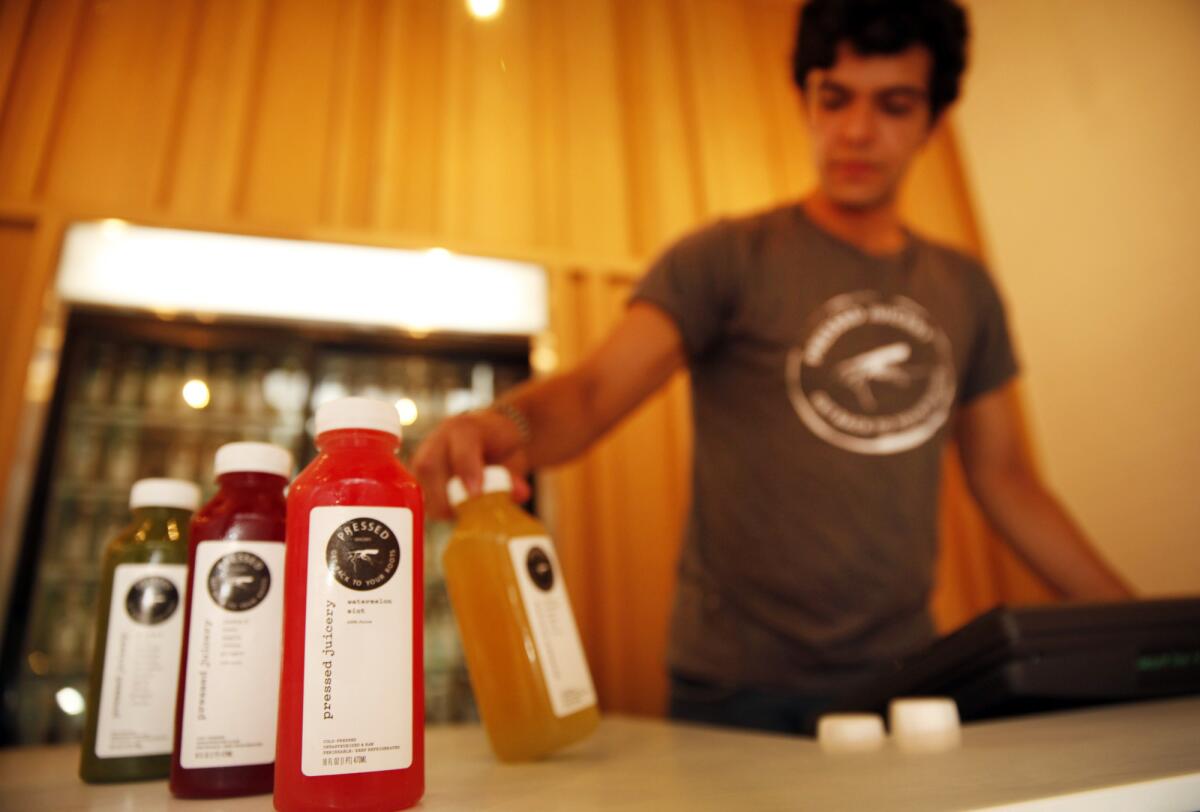Health experts throw cold water on juice cleanse

“Mom, this is a horrible idea.” So my college student son declared when he learned I had started a three-day juice cleanse, 72 hours of a juice diet. Six bottles each day, plus water and herbal tea. No solid food.
Go ahead. Make fun of me. Call me a cliché. A cleanse in January? Really? You and everyone else who has $150 to drop on three days of juice — for one person, that is, not the whole family. I chose a juice shop close to my house and was sold lots of green juices, a couple with coconut or almond milk, and one spicy beet juice and a charcoal lemonade (yup, a little gritty). They were, to be honest, pretty delicious and totaled about 1,200 calories a day.
And just what is the point? Reboot, purify, detox, reset and revitalize — and you have to admit, that sounds alluring.
A cleanse gives your digestive system a rest, juice advocates say. If you feel better and lose a few pounds, you might be motivated to keep to a more healthful diet. But it’s hard to prove whether you’ve been detoxified or rebooted.
Not that that stops people from trying.
“Our culture is obsessed with cleansing,” said Alexandria Dika Pandola, who wrote the play “Juic’d” about a bachelorette party where instead of frozen daiquiris, the bride-to-be is served a juice cleanse, one bottle after another with names including “humility,” “honesty” and “clarity.”
Some regimens include some solid food, colonics, saunas, dry-brushing of the skin or various supplements. Some juice company websites have notices that they are not medical facilities and advise people to seek out doctors before beginning a regimen.
“People see this as a time to start fresh, and juicing is often associated with detoxing or cleansing,” said Tricia Psota, a nutritionist at the U.S. Department of Agriculture’s Center for Nutrition Policy and Promotion.
But, she added, “Our GI [gastrointestinal] tract is set up to naturally detox.” The best way to keep it in shape is to use it, she said. “Eating fiber is like lifting weights for your GI tract.”
“There’s no data whatever” that shows detoxes or cleanses work, said Roger Clemens, director of analytical research at USC’s School of Pharmacy, who has written about cleanses with Dr. Peter Pressman. And extended for more than a few days — or for people with chronic diseases or other issues — they can be nutritionally compromising and harmful, he said.
“The claims are all nonsense,” Pressman said. “The kidneys want to be used; the liver wants to be used. You don’t improve them by depriving them.”
Rebooting our attitudes and kick-starting a healthful diet is no small feat. Changing habits is hard. And there’s something to the ritual, to taking resources and time to prepare for the cleanse and endure it.
“I know people claim they feel better,” said Dana Hunnes, a nutritionist at UCLA Medical Center, “but I don’t know if it’s a placebo effect — hey, I’m doing something amazing for my body, so I feel great.”
Whether juice cleanses work or not, they can be funny — or at least the juicers can be. And Pressed Juicery has captured some of that with their YouTube video of a beautiful blond woman offering such cleanse insights as “so detoxing right now” and “I only drink words I can pronounce” and “hashtag kill me.”
It wasn’t that bad for me. I lost a little weight, from the fit of my clothes. But as Hunnes says, it may be water weight and back before you read this. Not one person told me I glowed.




